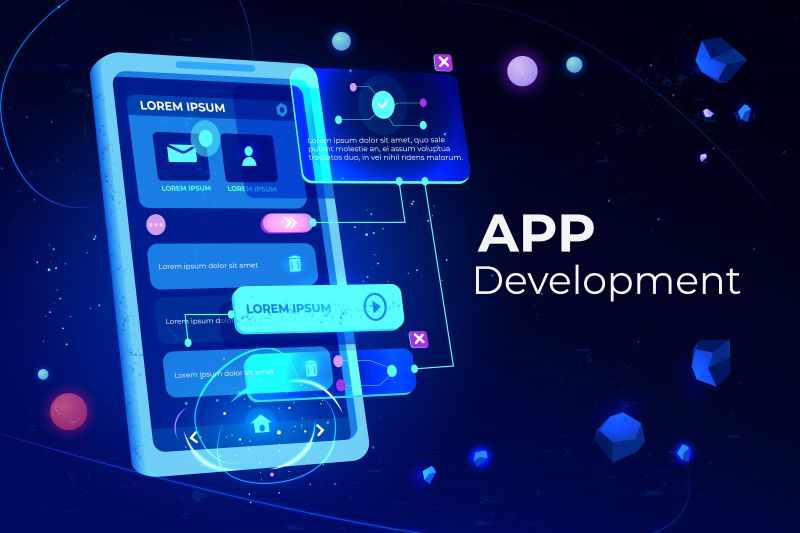
In today's hyper-connected world, businesses need to stay ahead of the curve by leveraging innovative technologies that drive efficiency, boost productivity, and enhance customer experiences. One such technology is the Internet of Things (IoT). Companies are increasingly turning to IoT Application Development Services to integrate smart devices, enhance data collection, and streamline operations.
With IoT's ability to connect physical devices to the digital world, the possibilities for optimizing workflows and improving decision-making are virtually limitless. From smart homes to industrial automation, IoT-powered solutions are revolutionizing industries, making them more agile and responsive to real-time data.
In this article, we will delve into the importance of IoT, explore the benefits of investing in IoT Application Development Services, and look at how businesses can implement IoT solutions to achieve long-term growth.
What is IoT, and Why Does it Matter?
The Internet of Things (IoT) refers to the interconnection of devices via the internet, enabling them to collect, exchange, and act upon data without requiring human intervention. These "smart" devices, which include everything from thermostats and home security cameras to industrial sensors and medical equipment, use sensors, processors, and wireless networks to transmit data in real-time.
The global IoT market is expanding at a rapid pace, driven by advancements in technology and increasing demand for connectivity. By 2027, the IoT market is expected to surpass $1.6 trillion. This massive growth is fueled by companies across various industries seeking to harness IoT's potential to increase operational efficiency, lower costs, and create new revenue streams.
If your business hasn't yet embraced IoT solutions, now is the time to explore IoT Application Development Services and integrate this groundbreaking technology into your operations.
Benefits of Investing in IoT Application Development Services
1. Enhanced Operational Efficiency
One of the most significant advantages of adopting IoT solutions is the ability to optimize business operations. Through continuous data collection from connected devices, IoT provides real-time insights into equipment performance, employee productivity, and resource usage. These insights enable companies to make data-driven decisions, reduce downtime, and predict potential issues before they arise.
For example, manufacturers can use IoT sensors to monitor machinery health, ensuring that maintenance is performed before a breakdown occurs. Retail businesses can implement smart inventory systems that automatically reorder products when stock is low, reducing the risk of lost sales. All of this is possible through custom IoT Application Development Services that tailor solutions to a business's specific needs.
2. Data-Driven Decision-Making
IoT generates vast amounts of valuable data, which, when properly analyzed, can provide actionable insights that enhance decision-making. By leveraging IoT-enabled systems, businesses can monitor customer behavior, track product performance, and gain insights into market trends.
This data can also help businesses improve customer experiences by offering personalized services and addressing customer needs more efficiently. For instance, retail stores can use IoT to track customer movements within the store, optimize product placement, and offer targeted promotions. With IoT Application Development Services, businesses can create customized analytics platforms that provide real-time reporting, enabling them to make informed decisions quickly.
3. Cost Savings
IoT solutions help businesses reduce costs in a variety of ways. By improving operational efficiency and reducing downtime, IoT can lead to significant cost savings over time. Additionally, IoT devices can monitor energy usage and optimize consumption, resulting in lower utility bills.
For instance, smart lighting systems can adjust brightness based on occupancy or natural light levels, ensuring that energy is not wasted. Similarly, in the logistics industry, IoT-enabled vehicles and fleets can optimize routes, reduce fuel consumption, and minimize maintenance costs. Through tailored IoT Application Development Services, businesses can achieve substantial savings and improve their bottom line.
4. Improved Customer Experiences
Customer expectations are evolving rapidly, and businesses must adopt technologies that enable them to meet these demands. IoT can play a significant role in enhancing the customer experience by enabling personalized interactions, automating processes, and providing real-time support.
For example, IoT-powered chatbots can offer 24/7 customer assistance, while smart devices like connected refrigerators can notify users when they are running low on groceries and offer options to reorder online. With the right IoT Application Development Services, businesses can create seamless and engaging experiences for their customers, boosting satisfaction and loyalty.
5. New Revenue Streams
IoT can also open up new revenue opportunities for businesses. By offering connected products and services, businesses can charge premium prices or create subscription-based models that generate recurring income. For instance, companies in the healthcare industry are developing IoT-enabled devices, such as wearable health trackers, that allow patients to monitor their conditions in real-time. These devices not only improve patient outcomes but also create additional revenue for healthcare providers.
Similarly, automotive companies are using IoT to develop connected vehicles that offer enhanced navigation, entertainment, and safety features. Businesses across sectors can explore IoT Application Development Services to innovate and create new, monetizable products.
Industry Applications of IoT
1. Manufacturing and Industrial IoT (IIoT)
In manufacturing, IoT is transforming the way production processes are monitored and controlled. Industrial IoT (IIoT) devices can track equipment performance, identify inefficiencies, and automate maintenance schedules. This improves overall equipment effectiveness (OEE), reduces downtime, and enhances safety on the production floor.
With the integration of IoT Application Development Services, manufacturers can develop custom solutions that integrate IoT devices with existing enterprise resource planning (ERP) systems, enabling a seamless flow of data and improving production management.
2. Healthcare
The healthcare industry is embracing IoT to improve patient outcomes and streamline operations. IoT-enabled devices, such as wearable health monitors and remote patient monitoring systems, allow healthcare providers to track patients' vital signs in real-time, alerting them to potential health issues before they escalate.
IoT Application Development Services are helping healthcare providers create personalized care plans based on real-time patient data, improving patient care and reducing hospital readmissions.
3. Retail
IoT is also making waves in the retail industry, where businesses are using connected devices to optimize inventory management, enhance the customer experience, and drive sales. Smart shelves, RFID tags, and IoT-enabled point-of-sale systems allow retailers to track stock levels, prevent theft, and provide personalized recommendations to shoppers.
With tailored IoT Application Development Services, retailers can harness the power of IoT to increase operational efficiency, reduce shrinkage, and offer seamless shopping experiences across channels.
4. Smart Cities and Infrastructure
Governments and municipalities are turning to IoT to develop smart city solutions that improve public services, reduce environmental impact, and enhance urban living. IoT sensors can monitor air quality, traffic flow, and energy usage, providing real-time data to optimize resource allocation and reduce waste.
IoT Application Development Services enable cities to design and implement custom IoT solutions that address specific challenges, such as traffic congestion, waste management, and energy consumption.
Implementing IoT in Your Business
If you're considering adopting IoT in your business, partnering with a reliable provider of IoT Application Development Services is key to ensuring a successful implementation. Here are some steps to guide you:
Identify Business Needs: Start by identifying the specific problems or opportunities that IoT can address in your organization.
Choose the Right Technology: Work with your development partner to select the right IoT devices, platforms, and networks for your needs.
Develop a Strategy: Develop a comprehensive IoT strategy that includes data management, security protocols, and integration with existing systems.
Partner with Experts: Choose an experienced IoT Application Development Services provider to design, develop, and implement your custom IoT solutions.
Monitor and Scale: Continuously monitor the performance of your IoT systems and make adjustments as needed to optimize results and scale solutions as your business grows.










Write a comment ...